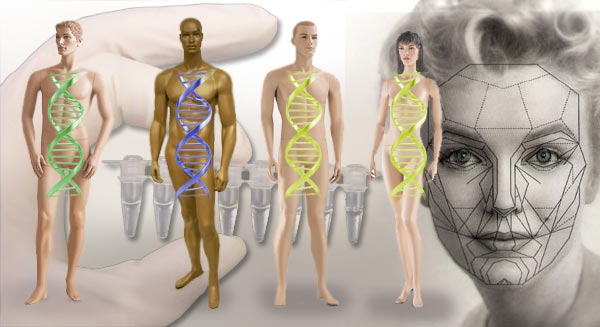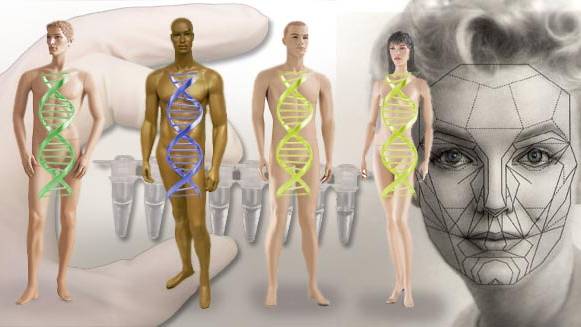DNA testing promoted to women as way to find Mr Right
Source: wiseupjournal.com
Is true love in your genes? How DNA testing could track down your Mr Right.
As the old saying has it, to find your perfect prince - or princess - you have to kiss a lot of frogs, and most of us have kissed more than one.
Small wonder then that those keen to navigate their way to happiness via a toad-free road are signing up for the latest dating phenomenon: DNA matching.
Forget the days of filling out questionnaires about your likes and dislikes, or lying about your bad habits online; these days the answer to true love is only a cheek swab away.
So how does DNA matching work? According to one of the sites to offer the service, ScientificMatch.com, the answer is all about chemistry.
Not, however, the spark which can turn a potentially dull date into a delightful dinner, but more literally the stuff of science.
‘Nature’s driving force is to ensure that you produce the healthiest possible offspring, so what DNA matching offers is the chance to pick a partner with the widest possible variety of genes and therefore the best immune system for any potential children,’ explains Eric Holzle, a former engineer-turned-matchmaker who runs ScientificMatch.
But what if your agenda is more about making whoopee than babies? According to Holzle, there are still benefits to be had, chief among them the fact that DNA testing can ascertain whether or not you will have ‘a more satisfying sex life with less chance of cheating’.
It all sounds a little bit far-fetched, yet there has long been evidence that human attraction is influenced by smell. Both ScientificMatch and Swiss company, GenePartner.com, which provides a DNA matching service for a variety of dating sites in Europe and the U.S., cite the infamous 1995 ‘sweaty T-shirt’ experiment in which women were asked to sniff the T-shirts of similarly aged men and rate their body odours as proof that DNA matching works.
‘In the sweaty T-shirt experiment it was found that women preferred the scent of men who had immune systems dissimilar to their own and vice versa,’ explains Dr Tamara Brown of GenePartner.
‘And from that, research has ascertained that the more variety there is between your genetic make-up and that of your partner, then the greater chance there is of compatibility.’
To Brown, who studied molecular genetics and has a PhD in neurobiology, DNA matching is simply a way of enabling couples to cut to the chase.
‘Twenty years ago this was the sort of thing that people did themselves. But today an increasing number of people do their dating online, so they can’t perform this initial screening process,’ she explains.
‘They might think they’ve met the perfect match online, but then when they meet there’s no chemistry. The service we offer in conjunction with the dating sites we work with provides a shortcut to this process, a natural screening which cuts down the number of people you meet.’
Of course, such science rarely comes cheap. ScientificMatch offers life membership site for approximately £1,200.
Meanwhile, GenePartner’s tests start at around £60, although it’s quick to stress that ‘Gene Partner is not a dating site but instead serves as a complimentary tool for social networking’. It already has 1,000 people on its database and is set to expand.
Even so, many of us can’t help but find the idea that a cheek swab will offer a better route to romance than a leisurely meal a little disconcerting.
Holzle, however, is keen to stress that his company is not trying to squeeze all the romance out of the search for Mr Right.
‘We can’t predict who is going to fall in love with whom,’ he says, laughing. ‘But we do live in a world where, increasingly, people find their partners online and what we’re offering is the chance to cut out a huge portion of society who you simply wouldn’t have chemistry with in the first place.
To Dr Brown this is only the beginning. ‘I truly believe that DNA matching will become the standard,’ she says, pointing out that the growth of social networking has changed the way in which we do everything from making friends to finding love.
Hozle says: ‘Generally we find that those under 45 love the idea because they realise that it’s going to make things a lot easier for them and ensure that they don’t waste their time. Those over 45 are less keen and generally far more likely to have privacy concerns.’
So is this really the future? Are we slowly abandoning all notion of taking a chance on love, preferring to treat romance as just another check on our list of things to do?
Article from: WiseUpJournal.com






















